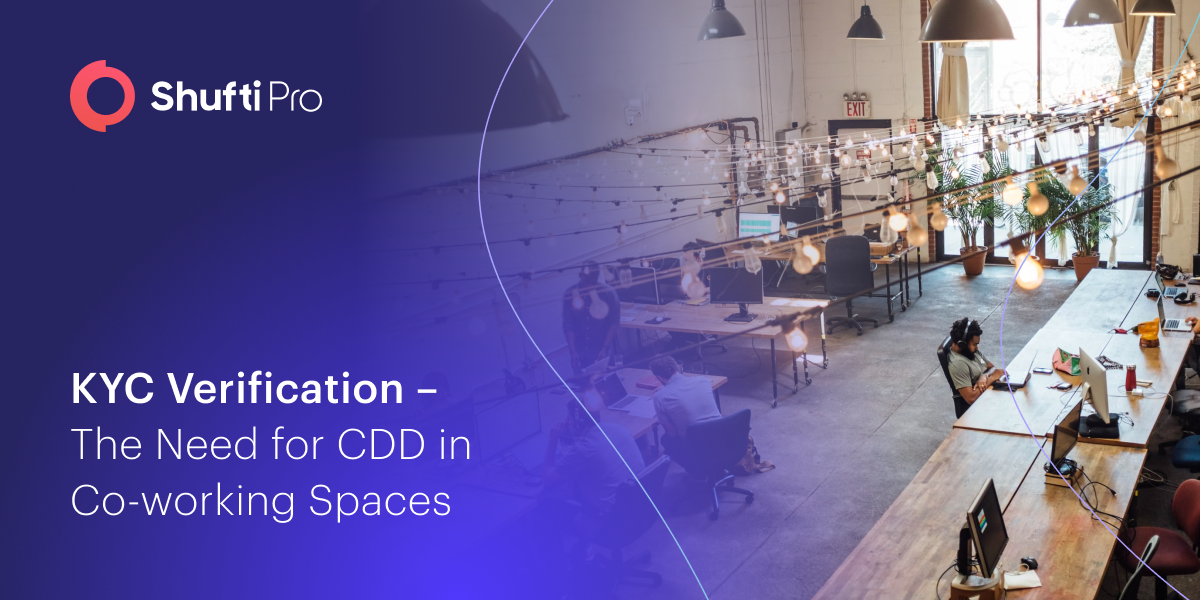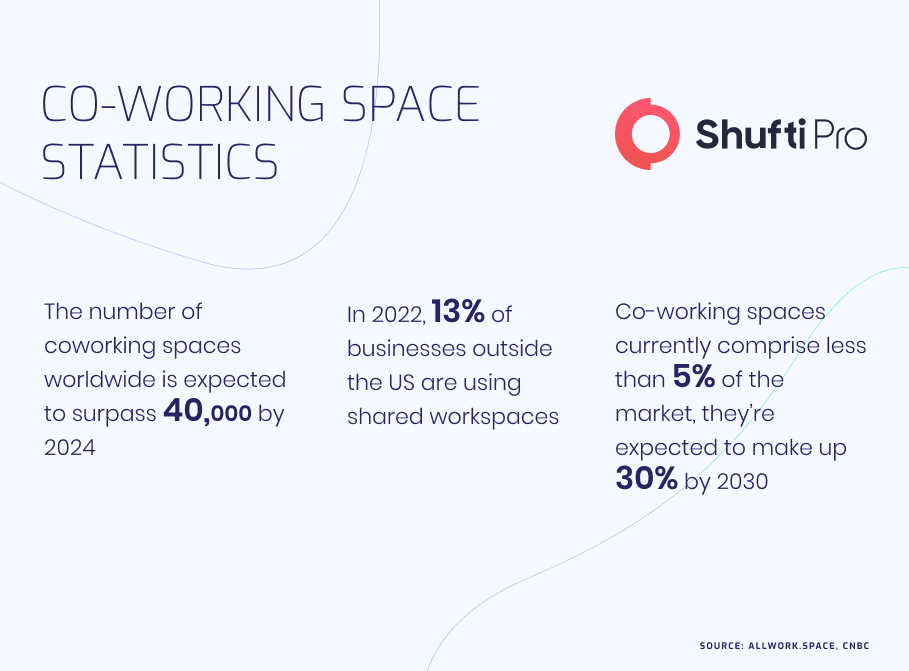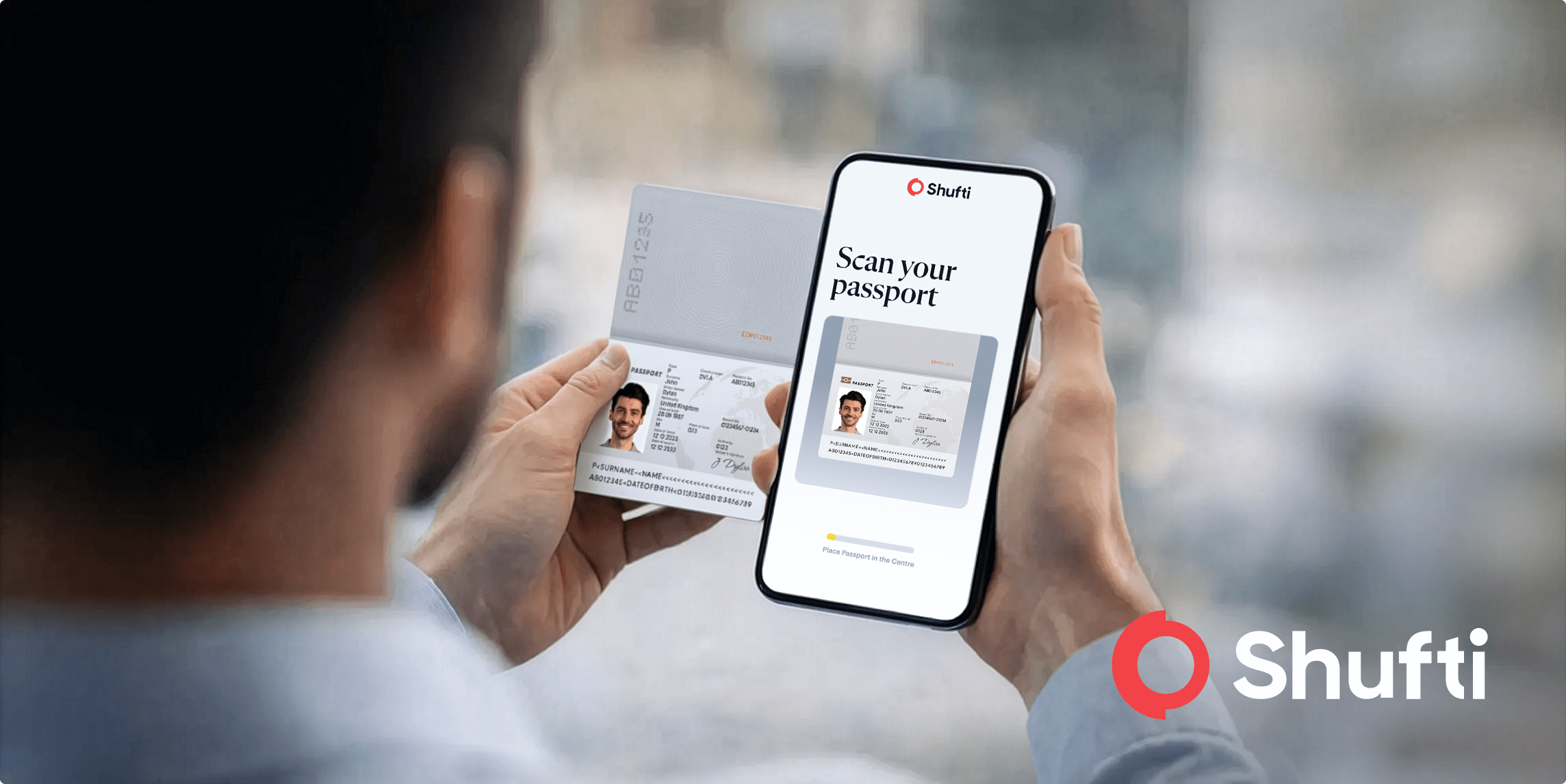KYC Verification – The Need for Customer Due Diligence in Co-Working Spaces

The development of coworking platforms has led to a business transformation that brings security risks of its own, including identity theft and unauthorized access. Co-working is a type of business or service provider model that brings together individuals to work in a collaborative and shared space.
As the relatively new format of working brings together unfamiliar groups of individuals and businesses, there are natural concerns of identity fraud and privacy breaches. Earlier on, shared workspaces existed in the form of coffee shops, restaurants, and hotel lobbies. However, individuals who visited those places did not follow regular patterns or working hours.
Security Concerns Faced by Co-working Spaces
With the advent of co-working spaces as independent business entities, startups and SMEs have started to utilize shared workspaces to cut down on overall costs. One of the main concerns that originate due to this new style of working is security. The majority of co-working platforms offer an open plan that does offer flexibility and cost-efficient services but compromises the privacy of employees.
According to businesses and individuals, co-working spaces are more secure with electronic access controls and biometric identity verification systems. Although the environment in a co-working space is comparatively relaxed and there is a limit on the number of individuals that can work at one time, privacy is still a concern.
Startups and SMEs that use the co-working system have also shown concerns about data breaches and property theft. Even though co-working spaces are designed to enable collaboration and improve networking for businesses, these facilities can sometimes backfire when companies end up sharing the workspace with a competitor.
Data Breaches and Cybersecurity
Another serious concern for businesses using co-working spaces is cybersecurity. Companies that process large volumes of sensitive data on a daily basis and work along with other businesses in shared workspaces are exposed to cybersecurity risks.
The traditional working environment gives businesses the edge that employees recognize each other and even know many of the team members in their department personally. On the other hand, coworking spaces offer a platform where employees of different companies come and go at their convenience. This means that it’s not necessary that the same individuals will be noticed or recognized by a specific employee.
Biometric Data Theft
In 2019, a publicly accessible database was found to have leaked the fingerprints of more than one million people along with other biometric information, including facial recognition data. “A leak of this nature is a serious affair. Biometric information cannot be changed in the same way as a credit card number, and once compromised, there is no going back,” a report on the BioStar 2 breach in ZDNet said.
Biometric data breaches have a catastrophic effect on the businesses they target. For instance, the surge in the use of deep fake technology which uses face scans to create fake videos of individuals is one of the major issues leading to identity fraud. As the co-working industry goes forward, owners and developers will need to improve the existing fraud prevention measures and incorporate robust identity verification mechanisms to cope with international standards. The most basic of these mechanisms come in the form of customer due diligence as part of a KYC verification solution.

How London’s Co-working Spaces Deal with Security Concerns
The surge in the number of businesses using co-working platforms in the UK’s capital has made security an even more important aspect. Co-working spaces in London have come up with ways to counter the risks of identity theft with the help of new advancements in cybersecurity. Companies like Winton Capital, Hedge fund, and K2 Space are designers of co-working spaces that have addressed the issues of data breaches in shared workspaces.
To combat privacy breaches, the i2 office in London provides dedicated meeting rooms that are available to rent for as little as half a day and include 24/7 office access with individual access. Similarly, Central Working, a co-working space in Shoreditch, provides private phone and skype booths for security-conscious members to carry out their tasks.
Applying the CDD Concept in Co-working Spaces
A fraud risk assessment aims to address businesses’ shortcomings in security systems against internal and external fraud. Implementing a customer due diligence system like banks can allow co-working spaces to prevent fraudulent activities. CDD concludes that how much a customer profile is a risk for an institution. In private and offshore banking, CDD is supposed to be done more deeply to inspect any suspicious identities in the system. Co-working spaces can risk score individuals that use their platform to know their background and check for their presence on global watchlists. In addition to analyzing risks, co-working spaces must also implement strategic measures to secure the individual accounts of employees.
With the application of two-factor authentication as an additional security measure, business communications and employees’ privacy can be secured. Two-factor authentication allows businesses to eliminate fraud and circumvent social engineering attacks in co-working spaces by requiring an additional requirement of a one-time code. Authentication measures like 2FA enable businesses to detect fraudulent activity beforehand and protect their financial assets as well as their reputation from being damaged.
What Shufti Offers
Protecting employees from being a victim of identity fraud in co-working platforms may sound like a difficult job, but businesses can always win their trust and identify bad actors through a robust identity verification solution. Validating every employee’s identity during the onboarding process makes it a lot easier for co-working platforms to onboard the right customers in no time. Furthermore, it builds trust among employees that they are dealing with a legit business.
Shufti’s Know Your Customer (KYC) verification is a solution that is right for all types of businesses. Verifying the identities of every customer and helping you onboard legitimate customers into your co-working space was never easier. Within less than a second, you get 98.67% accurate verification results. Moreover, the results are stored in the back office for future reference and case building. Apart from offering a top-notch identity verification service, Shufti is also GDPR and PCI DSS compliant, ensuring full data privacy and security of all your customers.
Need more assistance on our Know Your Customer verification? Get in touch with our experts right away!

 Explore Now
Explore Now













